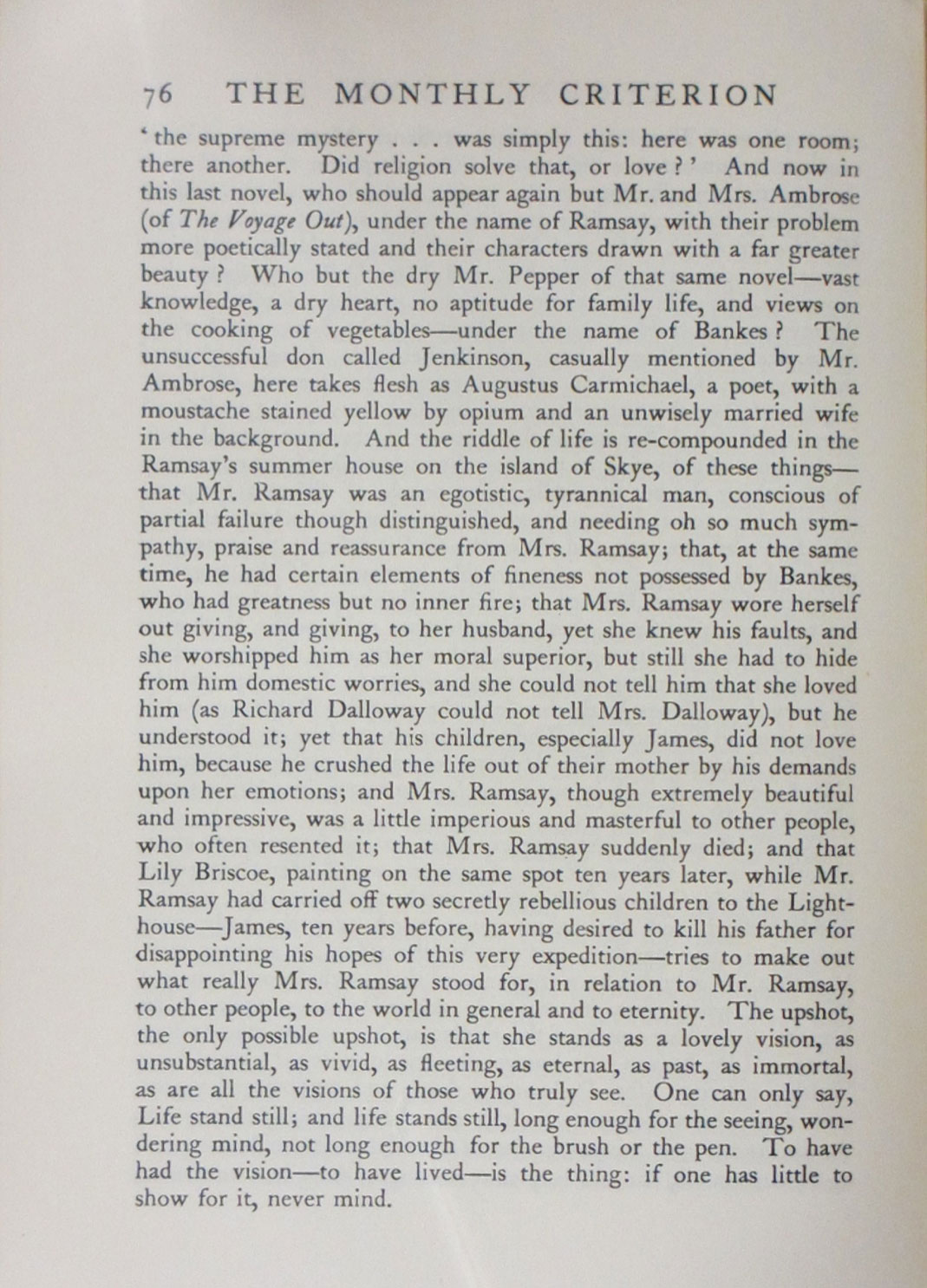
ŌĆśthe supreme mystery . . . was simply this: here was one room;
there another. Did religion solve that, or love?ŌĆÖ And now in
this last novel, who should appear again but Mr. and Mrs. Ambrose
(of The Voyage Out), under the name of Ramsay, with their problem
more poetically stated and their characters drawn with a far greater
beauty? Who but the dry Mr. Pepper of that same novelŌĆövast
knowledge, a dry heart, no aptitude for family life, and views on
the cooking of vegetablesŌĆöunder the name of Bankes? The
unsuccessful don called Jenkinson, casually mentioned by Mr.
Ambrose, here takes flesh as Augustus Carmichael, a poet, with a
moustache stained yellow by opium and an unwisely married wife
in the background. And the riddle of life is re-compounded in the
RamsayŌĆÖs summer house on the island of Skye, of these thingsŌĆö
that Mr. Ramsay was an egotistic, tyrannical man, conscious of
partial failure though distinguished, and needing oh so much sympathy,
praise, and reassurance from Mrs. Ramsay; that, at the same
time, he had certain elements of fineness not possessed by Bankes,
who had greatness but no inner fire; that Mrs. Ramsay wore herself
out giving, and giving, to her husband, yet she knew his faults, and
she worshipped him as her moral superior, but still she had to hide
from him domestic worries, and she could not tell him that she loved
him (as Richard Dalloway could not tell Mrs. Dalloway), but he
understood it; yet that his children, especially James, did not love
him, because he crushed the life out of their mother by his demands
upon her emotions; and Mrs. Ramsay, though extremely beautiful
and impressive, was a little imperious and masterful to other people,
who often resented it; that Mrs. Ramsay suddenly died; and that
Lily Briscoe, painting on the same spot ten years later, while Mr.
Ramsay had carried off two secretly rebellious children to the Lighthouse
ŌĆöJames, ten years before, having desired to kill his father for
disappointing his hopes of this very expeditionŌĆötries to make out
what really Mrs. Ramsay stood for, in relation to Mr. Ramsay,
to other people, to the world in general and to eternity. The upshot,
the only possible upshot, is that she stands as a lovely vision, as
unsubstantial, as vivid, as fleeting, as eternal, as past, as immortal,
as are all the visions of those who truly see. One can only say,
Life stand still; and life stands still, long enough for the seeing, wondering
mind, not long enough for the brush or the pen. To have
had the visionŌĆöto have livedŌĆöis the thing: if one has little to
show for it, never mind.






